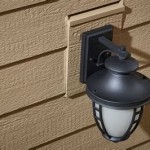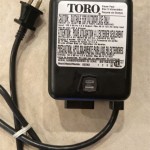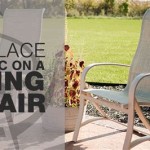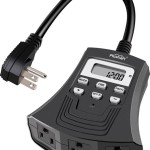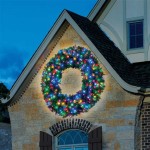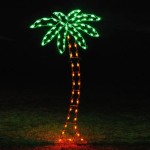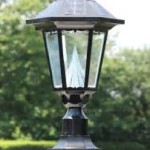What Gauge Wire To Hang Outdoor Lights
When hanging outdoor lights, it's important to use the correct gauge wire to ensure the lights are safe and function properly. The gauge of wire refers to its thickness, with a lower gauge number indicating a thicker wire. The thicker the wire, the more current it can carry and the less resistance it will have. For outdoor lighting, it's important to use a wire that is thick enough to handle the electrical load of the lights and that is also resistant to the elements.
Factors to Consider When Choosing Wire Gauge
When choosing the gauge of wire to use for hanging outdoor lights, there are several factors to consider:
- Length of the wire run: The longer the wire run, the thicker the wire needs to be to avoid voltage drop. Voltage drop is the reduction in voltage that occurs when current flows through a wire. The longer the wire, the more resistance it has, and the greater the voltage drop. To avoid excessive voltage drop, it's important to use a wire that is thick enough to carry the current without losing too much voltage.
- Number of lights: The more lights that are connected to the wire, the thicker the wire needs to be. Each light will draw a certain amount of current, and the total current draw of all the lights will determine the minimum gauge of wire that can be used.
- Type of lights: Different types of lights draw different amounts of current. Incandescent lights draw more current than LED lights, so a thicker wire is needed for incandescent lights.
- Location of the lights: Lights that are exposed to the elements will need to be connected to a wire that is resistant to moisture and UV radiation.
Recommended Wire Gauge for Outdoor Lights
Based on the factors discussed above, the following wire gauges are recommended for hanging outdoor lights:
- For short runs (up to 50 feet) and a few lights: 18 gauge wire is sufficient.
- For medium runs (50 to 100 feet) and a moderate number of lights: 16 gauge wire is recommended.
- For long runs (over 100 feet) or a large number of lights: 14 gauge wire is the best choice.
Tips for Hanging Outdoor Lights
In addition to using the correct gauge wire, there are a few other tips to keep in mind when hanging outdoor lights:
- Use weatherproof connectors: All connections should be made using weatherproof connectors to prevent moisture from getting into the wires.
- Support the wire: The wire should be supported every few feet to prevent it from sagging or breaking.
- Protect the wire from damage: The wire should be protected from damage by abrasion, chemicals, and heat.
- Test the lights before hanging them: Before hanging the lights, test them to ensure that they are working properly.
Conclusion
By following these tips, you can safely and easily hang outdoor lights to create a beautiful and festive ambiance in your backyard or outdoor space.

Using A Cable To Hang String Lights Concord Carpenter
How To Hang Outdoor String Lights Resource Article By Partylights Com

How To Hang Outdoor String Lights And Make Them Look Good Wirecutter
How To Hang Outdoor String Lights Resource Article By Partylights Com

How To Hang Outdoor String Lights And Make Them Look Good Wirecutter

How To Hang String Lights Outdoors
How To Hang Outdoor String Lights Resource Article By Partylights Com

Newhouse Lighting 48 Ft String Light Hanging Mounting Kit Wire Hooks Stringkit2 The Home Depot

Using A Cable To Hang String Lights Concord Carpenter
How To Hang Outdoor String Lights Resource Article By Partylights Com
